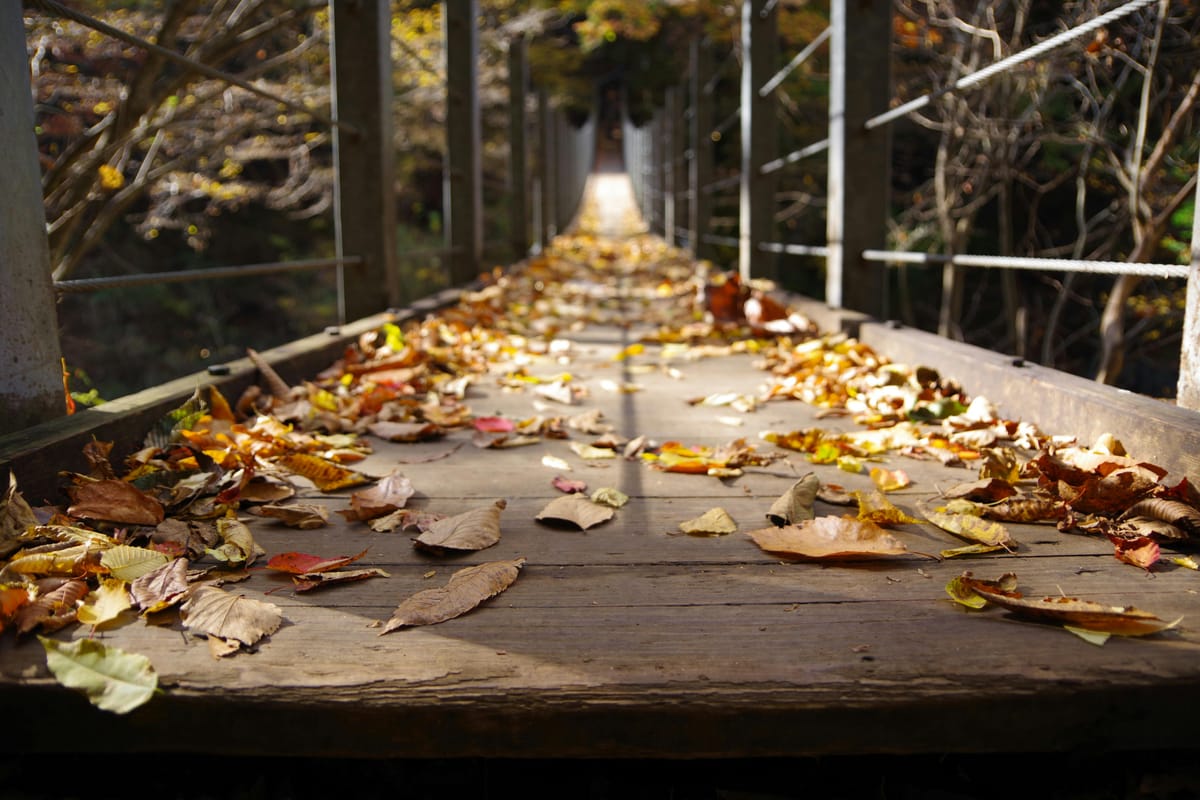Every new beginning

Rosh Hashanah is both the easiest Jewish holiday to explain to my non-Jewish loved ones ("It's the Jewish New Year!") and also one of the most difficult, because it functions as a mirror image to the secular New Year. The characteristics that make Rosh Hashanah so hard to succinctly describe—the focus on introspection, the bittersweet vibe—also put it in the running for my second favorite Jewish holiday.
The secular New Year feels like an afterthought. For the first 30-odd years of my life, December was all about Christmas: Christmas shopping, Christmas baking, Christmas parties, Christmas concerts, a whirlwind of red and green and twinkling lights and overwhelm. Now, December is about all of those things, plus Hanukkah, because I am a Jew who celebrates both holidays. By the time December 31 rolls around, I am burned out on socializing and festivities, and for the past several years my husband and I have observed the turn of the New Year at home, eating cheese and drinking cheap sparkling wine on our couch. There simply isn't time in all the hubbub of the holiday season to devote much energy to the New Year.
Rosh Hashanah, in contrast, feels deeply intentional. The holiday is preceded by the month of Elul, a time of spiritual preparation for the upcoming year. The shofar is blown throughout the month at synagogue services and other Jewish ritual gatherings, a near-daily reminder to look inward at where you've fallen short over the past year and what you want to change in the year ahead. My religious practice skews non-traditional, so my Elul observance this year included Judaism Unbound's annual online programming and an immersion in a local lake facilitated by Minnesota's open mikveh organization.
All of this lead up and introspection lends Rosh Hashanah a spiritual heft, as does the holiday's seasonality. Unlike the secular New Year, which falls smack in the middle of winter or summer (depending on your hemisphere), Rosh Hashanah arrives at a time of transition. In the Southern Hemisphere, it's spring, which ties in neatly with the theme of new beginnings and renewal. In the Northern Hemisphere, it feels even more profound—fall is a time of vibrant leaves and bountiful harvests, against a backdrop of death and decay.
As Semisonic sang, "Every new beginning comes from some other beginning's end." The progression of one year to the next is a time of possibility for what is to come but also a time of grief for what has passed. In my experience, mainstream American culture is deeply uncomfortable with grief—we encourage people to think positively, to look for the silver lining, to just move on. The New Year is marked with champagne and confetti, a frothy celebration that glosses over anything difficult about the passage of time. The Jewish tradition is more comfortable lingering in the bittersweet—our autumnal celebration of the New Year acknowledges that death and life are intertwined, and we need to let things go in order to embrace what is to come. (Tashlich, the symbolic casting off of sins by throwing breadcrumbs into a body of water, is the ritualized version of that sentiment.)
Instead of being a time of addition, cramming resolutions and self-help schemes into our already frenetic lives, Rosh Hashanah is a time of subtraction. We acknowledge that we can only truly move forward by discarding the habits that no longer serve us and the harms we have done to others and ourselves. Rosh Hashanah offers us a version of the New Year that is spiritually nourishing, truly marking an opportunity for a new beginning.
Given the terrifying nature of U.S. current events, it seems disingenuous to only focus inward during the High Holidays. In fact, my rabbi's Torah commentary at last night's Rosh Hashanah service focused on the authoritarian, repressive actions of the Trump administration and our responsibility as Jews to resist totalitarianism. It was a necessary message, but it also left me feeling a bit jaded as we finished the service with "Marbeh Tzedakah" a simple Hebrew song calling for more justice and peace.
How long have we been calling for justice and peace? What has that actually accomplished? I thought to myself. And then my surroundings snapped into focus. Despite all of the tragedies that have unfolded throughout Jewish history, we were gathered together to celebrate Rosh Hashanah with the sounding of the shofar, just as Jews have celebrated the holiday since biblical times. I doubt we will ever completely achieve justice and peace, but throughout the millennia enough people have worked toward that goal to enable the Jewish people to mark another year.
Shana tova! May we honor the beginnings and endings of this season, and do what we can to make 5786 a year of more justice and peace.